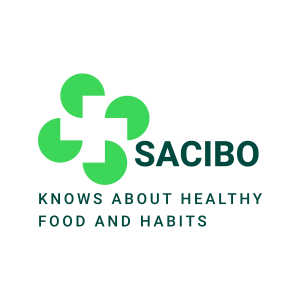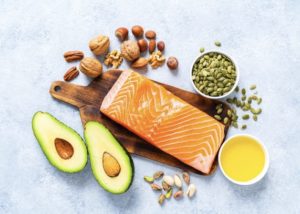- Home
- /
- Healthy Meal
- /
- Products
- /
- Sugar
- /
- Sugar: Its Impact on...
Sugar, the crystalline substance that has been captivating our taste buds for centuries, holds a complex and controversial place in our lives and our understanding of healthy eating. From the innocent joy of indulging in a sweet treat to the mounting concerns over its potential health effects, sugar has become a subject of intense scrutiny and debate. In this article, we aim to delve into the multifaceted world of sugar, examining its origins, impact on our bodies, and the role it plays in our overall health and well-being.
Why is this topic so controvercial?
Beyond the superficial allure of sugar lies a complex interplay between our bodies and this seemingly innocent ingredient. We need to explore the biochemical processes that occur when sugar enters our system, shedding light on how it affects our metabolism, immune system, and hormone regulation. Moreover, it is worth to dive into the symptoms and warning signs that may indicate an imbalance of sugar in the bloodstream, extending beyond the commonly recognized consequences.
But our exploration doesn’t stop there. We can venture into uncharted territory, uncovering the potential effects of excessive sugar consumption on aspects such as sleep patterns, menopause symptoms, premenstrual syndrome, skin health, and even fertility. By shedding light on these lesser-known connections, we hope to empower you with knowledge that extends beyond the ordinary, enabling you to make informed decisions about your dietary choices and healthy eating.
However, we must approach this topic with caution, as it is essential to strike a balance between raising awareness and avoiding the pitfalls of fearmongering. Our aim is not to demonize sugar entirely but rather to provide a nuanced understanding of its potential impacts when consumed in excess. By grasping the intricate dynamics at play, we can make more conscious choices, prioritize our well-being through healthy eating, and find equilibrium in our relationship with sugar.
Understanding Sugar
Sugar, in its various forms, is a simple carbohydrate that provides a quick source of energy for our bodies. It occurs naturally in fruits, vegetables, and dairy products, but it is also refined and added to a wide range of processed foods and beverages. The most common types of sugar include glucose, fructose, and sucrose.
The Bittersweet Impact on Our Bodies
While our bodies require sugar for energy, excessive consumption can have negative consequences. When we consume sugar, it quickly enters our bloodstream, causing a spike in blood glucose levels. In response, our pancreas releases insulin to facilitate the uptake of glucose by our cells. However, chronically elevated sugar intake can lead to insulin resistance, where cells become less responsive to insulin, potentially resulting in metabolic disorders such as type 2 diabetes.
Moreover, excessive sugar consumption can contribute to weight gain and obesity. High-sugar foods and beverages often provide empty calories, lacking essential nutrients while promoting overconsumption. The addictive nature of sugar further exacerbates the problem, as it can lead to cravings and a cycle of overindulgence.
To test yourself on sugar addictiveness you can here: Тест на сахарную зависимость
Beyond the Waistline
The impact of sugar extends beyond weight management. Research suggests that excessive sugar intake may increase the risk of various health conditions, including cardiovascular disease, fatty liver disease, certain types of cancer, and even mental health disorders. Additionally, a diet high in sugar can lead to nutrient deficiencies, as sugary foods often displace nutrient-rich options in our diet.
The Hidden Sugars
One of the biggest challenges in managing sugar intake lies in the prevalence of hidden sugars in processed foods. Sugar can masquerade under various names, such as high-fructose corn syrup, maltose, dextrose, and cane sugar. It is essential to read food labels diligently to identify added sugars and make informed choices about the foods we consume.
Breaking the Sweet Spell
Reducing sugar intake is a worthwhile endeavor for improving our health and well-being. Here are some strategies to help break free from the sweet spell:
1. Be label-savvy
Familiarize yourself with different names for sugar and learn to identify added sugars in food products. Opt for whole foods that contain natural sugars and are nutrient-dense.
2. Cook from scratch
By preparing meals at home, you have greater control over the ingredients you use, reducing reliance on processed foods that often contain hidden sugars.
3. Embrace whole foods
Focus on consuming a variety of fruits, vegetables, whole grains, lean proteins, and healthy fats. These whole foods provide essential nutrients, fiber, and a naturally occurring balance of sugars.
4. Reconsider sugary beverages
Swap sugary sodas, fruit juices, and energy drinks for water, herbal teas, or infused water with fresh fruits and herbs.
5. Train your taste buds
Gradually reduce your sugar intake, allowing your taste buds to adapt to less sweetness. Over time, you may find that you appreciate the natural flavors of foods without the need for excessive sweetness.
6. Seek healthier alternatives
Explore natural sweeteners such as stevia, monk fruit, or small amounts of honey or maple syrup as alternatives to refined sugar. However, moderation is key, as even these alternatives should be used
Knowledge is the power
As we come to the end of our exploration into the effects of excessive sugar consumption on our bodies, we find ourselves armed with knowledge that empowers us to make better choices for our health and well-being. The journey has been eye-opening, revealing the intricate ways in which sugar can impact our metabolism, immune system, hormone regulation, and overall health.
It is important to recognize that sugar, like many things in life, is best enjoyed in moderation. Our bodies are resilient and adaptable, capable of handling occasional indulgences. However, the key lies in cultivating a mindful and balanced approach to our dietary habits. By understanding the consequences of excessive sugar consumption, we can navigate the temptations of our modern world with greater awareness and make choices that support our long-term health.
Symptoms of sugar effect
Let us remember the signs and symptoms that may indicate an imbalance of sugar in our bloodstream, extending beyond the obvious effects. From disrupted sleep patterns and intensified menopause symptoms to the impact on skin health, fertility, and mental clarity, our bodies provide subtle signals that guide us towards finding a harmonious balance.
A bit more recommendations
Armed with this knowledge, we can embark on a journey of self-discovery and self-care. Let us prioritize nourishing ourselves with whole foods, focusing on nutrient-dense options that provide sustained energy and promote optimal health. By embracing a diet rich in complex carbohydrates, lean proteins, healthy fats, and an abundance of fruits and vegetables, we can support our bodies in maintaining stable blood sugar levels and reaping the benefits of a well-balanced lifestyle.
Moreover, let us not forget the importance of quality sleep and stress management in our pursuit of optimal health. By prioritizing sufficient sleep, adopting relaxation techniques, and finding healthy outlets for stress, we can further enhance our well-being and support our bodies in functioning optimally.
Conclusion
In conclusion, the impact of excessive sugar consumption on our bodies goes beyond mere sweetness. It is a topic that warrants our attention and informed decision-making. By embracing a holistic approach to our health, one that considers the interplay of nutrition, sleep, and stress management, we can embark on a journey towards a healthier, more vibrant life.
By striking a balance between indulgence and nourishment, we can savor the sweetness of life while safeguarding our well-being. Together, let us navigate the path towards a healthier future, where we take charge of our choices and empower ourselves to live our best lives.
Remember, the sweetest victories lie not in abstinence but in conscious choices that honor both pleasure and well-being. Let us embark on this journey with open minds, compassionate hearts, and a commitment to creating a harmonious relationship with sugar—one that nourishes our bodies and supports us on the path to lasting health and vitality.
































































0 Comments